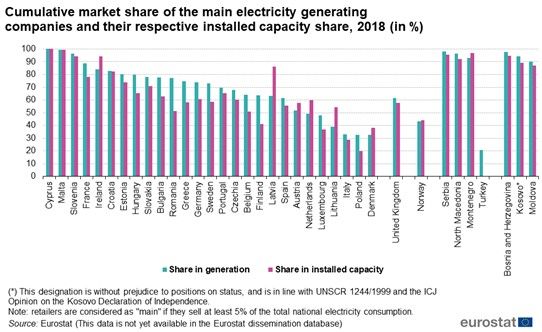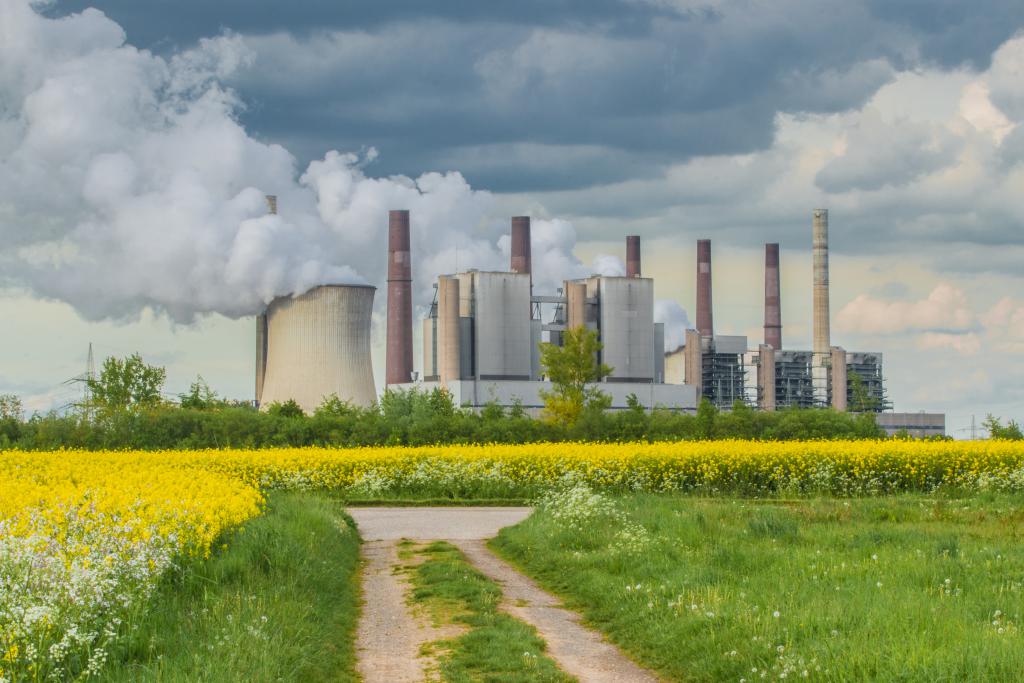The Polish Electricity Association (PKEE) was concerned about the report prepared by Instrat and ClientEarth entitled “Coal monopoly with problems.Analysis of the restructuring of the Polish energy sector ”.PKEE is of the opinion that although the energy transformation in Poland, due to its complex and universal nature, requires a broad public debate, the theses contained in the report are far from actually planned changes.
PKEE appreciates all initiatives serving a constructive debate on the transformation of the Polish energy sector. We are particularly interested in analyzing reports and proposals resulting from in-depth research conducted by independent think tanks. On the other hand, publications that seem to be based on a review of incomplete materials, which are not currently a planned action plan, unfortunately raise doubts and raise questions about the purpose and intention of their publication and the scope of knowledge of their authors. Moreover, the multitude of content-related inconsistencies, methodological errors or even simple factual errors that can be noticed undermine the reliability and credibility of the document. The non-objective selection of theses or even photos illustrating the "report" may indicate a deliberate procedure aimed at discrediting the work on the transformation plan, which is currently being carried out by an independent advisor. We would like to clearly emphasize that we do not negate the possibility of free expression of the authors and present our own opinion, but we only want to draw attention to the need to exercise due diligence and the rules of reliable analytics, the more so as the matter described concerns a very important area, which is the transformation of the domestic energy sector.
We would like to point out that proposing the decommissioning of coal-fired energy at a rate that exceeds the technical possibilities of supplementing and replacing the resulting power loss in the energy system is detrimental to the substantive discussion on an orderly and fair energy transformation process.It should be acknowledged that in the area of technical and economic feasibility, the report by Instrat and ClientEarth not only does not contain significant elements of value, but is extremely detrimental to the quality of the discussion on the shape of Poland's energy policy.
As an industry expert organization, we want to emphasize the fact that taking into account the recommendations of the authors of the report in the actual operating or planning activities in the energy sector would lead to a catastrophic collapse of electricity supplies in Poland in the coming year, as well as to practically daily rotational interruptions in energy supplies to all groups customers, coupled with the galloping increase in wholesale electricity prices. It is worth noting that the authors of the report do not indicate any alternative to power supply in Poland - in practice, in the years they mentioned (2021, 2024, 2030, 2035) they propose an exclusion (respectively: 10GW, 16.6GW, 28.08GW, 33, 18GW) of power, without any alternative to ensure continuity of energy supplies to Polish customers. Apart from even the enormous costs of implementing such proposals, it should be clearly emphasized that there is no technical possibility of successfully completing any investment process that would consist in replacing coal-fired power plants as the available capacity of the National Power System in the indicated time horizons, regardless of whether do the authors of the report believe that these capacities should be replaced by renewable energy sources, DSR, gas, nuclear or, for example, by energy imports.
In the area of competition analysis, the competence and reliability of the report's authors also raise serious doubts. The Polish manufacturing sector, which is one of the least concentrated in Europe, is currently characterized, according to the authors of the report, with a market share of the three largest entities at the level of 67.7% (page 6 of the report). Certainly, the authors of the material should not state that the transformations leading to the reduction of this share to 56% (page 11) constitute "increased concentration in all segments of the electricity market". The authors of the report make an obvious error in their assessment of the generation segment, both in the description of the "transformation" variant and in their recommendations. Moreover, the authors of the document are internally inconsistent also in the area of distribution: on the one hand, they note that "changing the distribution system operator (DSO) is not possible" (in other words - distribution is a natural spatial monopoly), and on the other hand - they are afraid of consolidation in this field. . As each of the DSOs is and so regulated by the President of the ERO as an individual monopolist in the area of their operations, it is impossible to agree with the thesis presented above that consolidation in this area could be detrimental to consumers. On the contrary, there are numerous models of operational, investment and development synergies that could be implemented by removing the artificial divisions of Poland in the area of distribution networks.

The authors of the report also state that "the history of EU state aid law does not know a similar set of financial mechanisms to that envisaged in the initial restructuring plan for the Polish electricity sector."Indeed, the processes of restructuring the mining and coal-based energy sectors in Western Europe took place in the years when the provisions on state aid were much milder than the present ones.The analysis of the cases of implemented restructuring processes shows that these are always individualized solutions, tailored to the specific conditions of a given country, region and industry, therefore it is difficult to replicate them exactly.On the other hand, the common element is the active participation of state and local administration in these processes.
The authors of the report indicated that the optimal solution for the transformation was the division of assets without consolidation and the separation of coal assets into new, separate coal companies. It should be noted, however, that the creation of several new listed companies from the separated assets would require an IPO for each of them and acquisition of various strategic investors, and for each of these investors - obtaining the consent of the minister of state assets to take control of the acquired assets. The authors of the material do not indicate where such investors could be effectively found and how to ensure government approval for these external entities to take de facto control over Poland's energy security. It should be noted that the motivation of these "new investors" would rather not be to obtain financial benefits, as numerous initiatives, such as: Climate Action 100+, taxonomy, or a new investment strategy of banks, would prevent such (hypothetical) new coal companies from effectively acquiring external financing - similar to the current owners (PGE, TAURON, Enea) preventing them today. Summing up, the solution proposed by the authors of the report should be described as extremely unrealistic and detached from today's and forecast market conditions.
The second option considered by the authors of the report is the lack of division of assets and the continuation of the current model (maintaining the status quo).It assumes "a large injection of cash for investments in renewable energy" with the simultaneous noticing by the authors of the inability to obtain financing for investments by energy capital groups with coal assets in their portfolios.This variant is best known by the members of the PKEE, who in numerous public statements identified and indicated its significant shortcomings and inadequacy for the implementation of the energy transformation goals.In this variant, the text of the report proposes mutually contradictory assumptions which, in the opinion of PKEE, will make it difficult, and sometimes impossible, to transform the energy sector.
The last of the transformation models considered by the authors, assessed by them as equal to maintaining the status quo, is the return to the Polish economic policy of the 1990s and the implementation of full, uncontrolled privatization of the entire Polish power sector.As in the case of the variant of asset division without consolidation, recommended by the authors of the report, a number of problems would arise here, includingwith: impairment of the role of the state in ensuring the country's energy security, long-term and (as shown by practical Polish experience) irreversible economic degradation of individual regions and deterioration of the living conditions of numerous local communities, or delayed energy transformation as a result of an inevitably extended schedule of implementing such a variant.
Summing up, all options recommended by the authors of the report assume, inter alia,the passive attitude of the Polish government administration to the issues of energy transformation - in practice, the largest economic policy project in the European Union in the next three decades.It is hard to understand how, for the authors of the text, such a passive attitude of Poland in the course of transformation may be the common denominator of the variants recommended by them.Such a recommendation of the authors of the report is all the more surprising as they themselves notice that such an approach would result in the loss of government control over maintaining basic standards of energy supply security, "uncontrolled increase in energy prices" or "lack of social protection for people who lose their jobs as a result of the transformation".
From the perspective of Polish energy companies and industry associations affiliated to PKEE, Instrat and ClientEarth's denial of the idea of transformation and further consolidation excludes Polish companies from the transformation of the Polish energy sector in the largest and most important projects for the country (such as the development of offshore wind farms)), requiring the involvement of financial resources not available in the current ownership structure of energy assets in Poland.Therefore, we are currently waiting with hope for the results of a thorough, comprehensive analysis of an independent adviser, which will be subject to a public debate and objective assessment.

